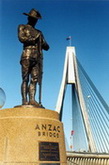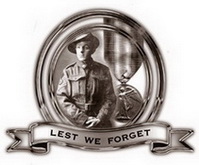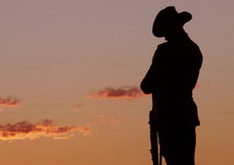|
The Crimean War (1853-1856)
The Crimean War was fought between Imperial Russia on one
side and an alliance of France, the United Kingdom, the Kingdom of Sardinia, and
the Ottoman Empire on the other. Most of the conflict took place on the Crimean
Peninsula, with additional actions occurring in western Turkey, and the Baltic
Sea region. The Crimean War is sometimes considered to be the first "modern"
conflict and "introduced technical changes which affected the future course of
warfare. The War brought to a close the era of Anglo-Russian domination in
Europe. Great Britain, by fighting with France in the Near East, and Russia, by
fighting against France, both conceded equality to her as a Mediterranean power.
The Crimean War (October 1853 - February 1856) was a conflict between the Russian
Empire and an alliance of the French Empire, the British Empire, the Ottoman Empire,
and the Kingdom of Sardinia. The war was part of a long-running contest between the
major European powers for influence over territories of the declining Ottoman Empire.
Most of the conflict took place on the Crimean Peninsula, but there were smaller
campaigns in western Anatolia, Caucasus, the Baltic Sea, the Pacific Ocean and the
White Sea. In Russia, this war is also known as the "Eastern War", and in Britain it
was also called the "Russian War" at the time.
The Crimean War is known for the logistical and tactical errors during the land
campaign on both sides (the naval side saw a successful Allied campaign which
eliminated most of the ships of the Russian Navy in the Black Sea). Nonetheless,
it is sometimes considered to be one of the first "modern" wars as it "introduced
technical changes which affected the future course of warfare," including the first
tactical use of railways and the electric telegraph. It is also famous for the work
of Florence Nightingale and Mary Seacole, who pioneered modern nursing practices
while caring for wounded British soldiers.
The Crimean War was one of the first wars to be documented extensively in written
reports and photographs: notably by William Russell (for The Times newspaper) and
Roger Fenton respectively. News correspondence reaching Britain from the Crimea was
the first time the public were kept informed of the day-to-day realities of war.
The Boer War - South Africa (1899-1902)>
The Second Boer War, commonly referred to as The Boer War and
also known as the South African War (outside of South Africa), the Anglo-Boer
War (among most South Africans) and in Afrikaans as the Anglo-Boereoorlog or
Tweede Vryheidsoorlog ("Second War of Independence"), was fought from 11 October
1899 until 31 May 1902, between the British Empire and the two independent Boer
republics of the Orange Free State and the South African Republic (Transvaal
Republic). After a protracted, hard-fought war, the two independent republics
were absorbed into the British Empire.
World
War I (1914-1918)
The first truly global conflict involving more countries than any war
except World War II; also called "The war to end all wars" and "The Great War."
The fighting took place mostly in Europe. The Allies included Australia, Great
Britain, France, Russia (until 1917), Italy, and the United States (1917-1918).
The Central Powers consisted of Germany, Austria-Hungary, Turkey, and Bulgaria.
Its causes included extreme nationalism among Europeans, a race for colonial
possessions fuelled by imperialism, and economic rivalries. The "Great War" was
one of the bloodiest in history--an estimated eight to ten million troops were
killed. Nearly as many civilians died from disease, starvation, or other causes.
World War I (WWI), which was predominantly called the World War or the Great War
from its occurrence until 1939, and the First World War or World War I thereafter,
was a major war centred in Europe that began on 28 July 1914 and lasted until
11 November 1918. It involved all the world's great powers,which were assembled in
two opposing alliances: the Allies (based on the Triple Entente of the United
Kingdom, France and Russia) and the Central Powers (originally centred around the
Triple Alliance of Germany, Austria-Hungary and Italy). These alliances both
reorganised (Italy fought for the Allies), and expanded as more nations entered the
war. Ultimately more than 70 million military personnel, including 60 million
Europeans, were mobilised in one of the largest wars in history. More than 9 million
combatants were killed, largely because of great technological advances in firepower
without corresponding advances in mobility. It was the sixth deadliest conflict in
world history, subsequently paving the way for various political changes such as
revolutions in the nations involved.
Long-term causes of the war included the imperialistic foreign policies of the great
powers of Europe, including the German Empire, the Austro-Hungarian Empire, the Ottoman
Empire, the Russian Empire, the British Empire, France, and Italy. The assassination on
28 June 1914 of Archduke Franz Ferdinand of Austria, the heir to the throne of
Austria-Hungary, by a Yugoslav nationalist was the proximate trigger of the war. It
resulted in a Habsburg ultimatum against the Kingdom of Serbia. Several alliances formed
over the previous decades were invoked, so within weeks the major powers were at war;
via their colonies, the conflict soon spread around the world.
World War II (1939-1945)
Global conflict involving every major power in the world. The Allies
originally consisted of Great Britain, France, and China, but totalled fifty
nations, including the Australia, United States and the Soviet Union, by the end
of the war. The Axis powers of Germany, Italy, Japan and (until 1941) the Soviet
Union were eventually joined by six other nations. Causes of the war were the
rise of imperialist and totalitarian dictatorships in Germany, Italy, and Japan
after World War I and a world wide economic collapse, the Great Depression.
Military deaths in the worldwide conflict were predictably massive, totalling in
excess of 17 million troops. The number of civilian deaths due to bombing raids,
starvation, and disease was even greater. When the Allies liberated the death
camps in Germany and Poland, they were horrified to discover the extent of the
Holocaust that Germany had conducted during the war. Some 12 million people had
been murdered, including 6 million Jews. The Soviet Union suffered the most
deaths of any single country--about 20 million military personnel and civilians
died.
World War II, or the Second World War (often abbreviated as WWII or WW2), was a
global conflict that was underway by 1939 and ended in 1945. It involved most of
the world's nations, including all of the great powers, eventually forming two
opposing military alliances: the Allies and the Axis. It was the most widespread
war in history, with more than 100 million military personnel mobilised. In a
state of "total war", the major participants placed their entire economic,
industrial, and scientific capabilities at the service of the war effort, erasing
the distinction between civilian and military resources. Marked by significant
events involving the mass death of civilians, including the Holocaust and the only
use of nuclear weapons in warfare, it is the deadliest conflict in human history,
resulting in 50 million to over 70 million fatalities.
Although Japan was already at war with China in 1937, the world war is generally
said to have begun on 1 September 1939, with the invasion of Poland by Germany,
and subsequent declarations of war on Germany by France and most of the countries
of the British Empire and Commonwealth. Germany set out to establish a large empire
in Europe. From late 1939 to early 1941, in a series of campaigns and treaties,
Germany conquered or subdued much of continental Europe; amid Nazi-Soviet agreements,
the nominally neutral Soviet Union fully or partially occupied and annexed territories
of its six European neighbours, including Poland. Britain and the Commonwealth remained
the only major force continuing the fight against the Axis in North Africa and in
extensive naval warfare. In June 1941, the European Axis launched an invasion of the
Soviet Union, giving a start to the largest land theatre of war in history, which, from
that moment on, tied down the major part of the Axis military power. In December 1941,
Japan, which aimed to dominate Asia, attacked the United States and European possessions
in the Pacific Ocean, quickly conquering much of the region.
Korean War (1950-1953)
Conflict pitting South Korea and U.N. forces against North Korea and later
the People's Republic of China. The war began when the North Korean Communist
army crossed the thirty-eighth parallel on June 25, 1950, invading the Republic
of South Korea. The United Nations Security Council, declaring North Korea an
aggressor, sent troops to counter the invasion. Sixteen nations sent troops, and
forty-one countries sent food and supplies, but the United States was the
largest contributor of arms, troops and equipment. The war reached a stalemate
in June, 1951, and after two years of negotiations an armistice was signed July
27, 1953, with the thirty-eighth parallel designated as the border between North
and South Korea.
Vietnamese War (1955-1975)
Military conflict in Vietnam between the U.S.-backed South Vietnamese
government and the Communist-led guerrilla forces backed by North Vietnam. The
war, the nation's longest, resulted in the loss of 56,121 American lives and was
the first in which the United States failed to achieve its goals. The tonnage of
bombs dropped on North Vietnam by the United States was greater than the total
of that dropped on Germany, Italy, and Japan during World War II. The war left
up to 10 million refugees and caused sharp divisions among the American people.
The Persian Gulf War (1990 -
1991)
On August 2, 1990, Iraqi forces invaded Kuwait and quickly seized control
of the small nation. Within days, the United States, along with the United
Nations, demanded Iraq's immediate withdrawal. U.S. and other UN member nations
began deploying troops in Saudi Arabia within the week. By January of 1991, over
half a million allied troops were deployed in Saudi Arabia and throughout the
Gulf region. On 16th January 1991, Allied forces began the devastating bombing
of Iraq and her forces in Kuwait. Allied forces launched the ground war on 23rd
February. Cut off from their supply bases and headquarters by the intense air
campaign, thousands of Iraqi soldiers simply gave up rather than fight, as the
Allies pushed through Iraq's defences with relative ease. By 26th February,
Allied forces controlled Kuwait City. On 27th February, President Bush ordered a
cease-fire and the surviving Iraqi troops were allowed to escape back into
southern Iraq. On 3rd March 1991, Iraq accepted the terms of the cease-fire and
the fighting ended. Original figures listed 100,000 Iraqi military dead, but
more recent estimates place Iraqi dead at 20,000 military and 2,300 civilian.
The United States had 148 killed in action, 458 wounded. In addition, 121
Americans died through non-combat incidents.
The Iraq War (2003-2014)
The Iraq War (or War in Iraq) began on March 20, 2003 with the invasion of Iraq by the United States under the administration of President George W. Bush and the United Kingdom under Prime Minister Tony Blair. The war is also referred to as the Occupation of Iraq, the Second Gulf War, or Operation Iraqi Freedom by the US military.
The invasion of Iraq led to an occupation and the eventual capture of President Saddam, who was later tried in an Iraqi court of law and executed by the new Iraqi government. In June 2008, U.S. Department of Defence officials claimed security and economic indicators began to show signs of improvement in what they hailed as significant and fragile gains. In 2007, Iraq was second on the Failed States Index; though its ranking has steadily improved since then, moving to fifth on the 2008 list, sixth in 2009, and seventh in 2010. As public opinion favouring troop withdrawals increased and as Iraqi forces began to take responsibility for security, member nations of the Coalition withdrew their forces. In late 2008, the U.S. and Iraqi governments approved a Status of Forces Agreement effective through January 1, 2012. The Iraqi Parliament also ratified a Strategic Framework Agreement with the U.S., aimed at ensuring cooperation in constitutional rights, threat deterrence, education, energy development, and other areas. In late February 2009, newly elected U.S. President Barack Obama announced an 18-month withdrawal window for combat forces, with approximately 50,000 troops remaining in the country "to advise and train Iraqi security forces and to provide intelligence and surveillance". However on October 21, 2011, President Obama announced that all U.S. troops and trainers would leave Iraq by the end of the year, bringing the U.S. mission in Iraq to an end.
Current List of people on this site that are known to have done Military Service
For more info: Source; Wikipedia:Lists of wars
|







